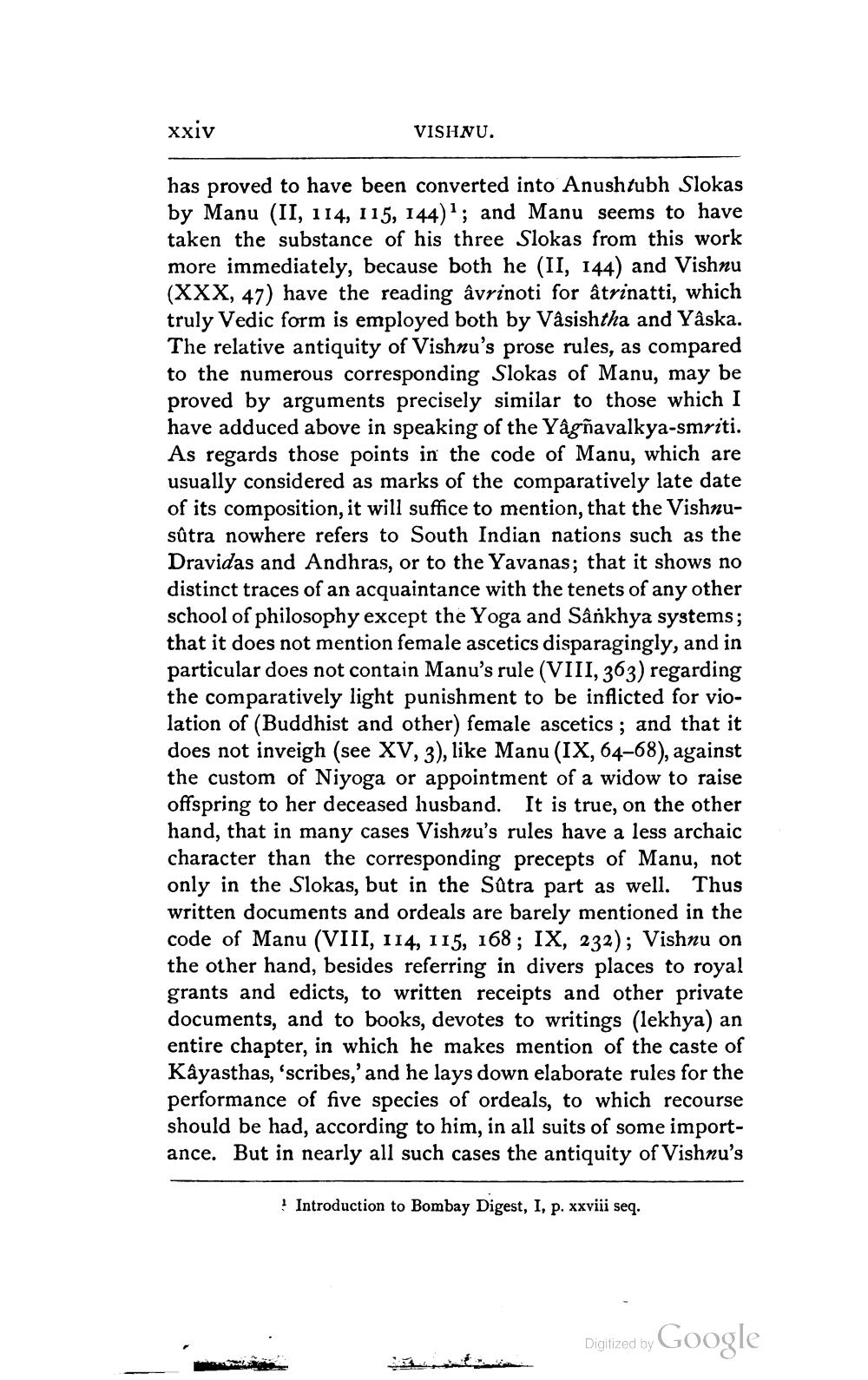________________
xxiv
VISHNU.
has proved to have been converted into Anushtubh Slokas by Manu (II, 114, 115, 144); and Manu seems to have taken the substance of his three Slokas from this work more immediately, because both he (II, 144) and Vishnu (XXX, 47) have the reading âvrinoti for âtrinatti, which truly Vedic form is employed both by Vâsishtha and Yâska. The relative antiquity of Vishnu's prose rules, as compared to the numerous corresponding Slokas of Manu, may be proved by arguments precisely similar to those which I have adduced above in speaking of the Yâgñavalkya-smriti. As regards those points in the code of Manu, which are usually considered as marks of the comparatively late date of its composition, it will suffice to mention, that the Vishnusútra nowhere refers to South Indian nations such as the Dravidas and Andhras, or to the Yavanas; that it shows no distinct traces of an acquaintance with the tenets of any other school of philosophy except the Yoga and Sankhya systems; that it does not mention female ascetics disparagingly, and in particular does not contain Manu's rule (VIII, 363) regarding the comparatively light punishment to be inflicted for violation of (Buddhist and other) female ascetics; and that it does not inveigh (see XV, 3), like Manu (IX, 64-68), against the custom of Niyoga or appointment of a widow to raise offspring to her deceased husband. It is true, on the other hand, that in many cases Vishnu's rules have a less archaic character than the corresponding precepts of Manu, not only in the Slokas, but in the Satra part as well. Thus written documents and ordeals are barely mentioned in the code of Manu (VIII, 114, 115, 168 ; IX, 232); Vishnu on the other hand, besides referring in divers places to royal grants and edicts, to written receipts and other private documents, and to books, devotes to writings (lekhya) an entire chapter, in which he makes mention of the caste of Kayasthas, 'scribes,' and he lays down elaborate rules for the performance of five species of ordeals, to which recourse should be had, according to him, in all suits of some importance. But in nearly all such cases the antiquity of Vishnu's
Introduction to Bombay Digest, I, p. xxviii seq.
Digitized by Google




